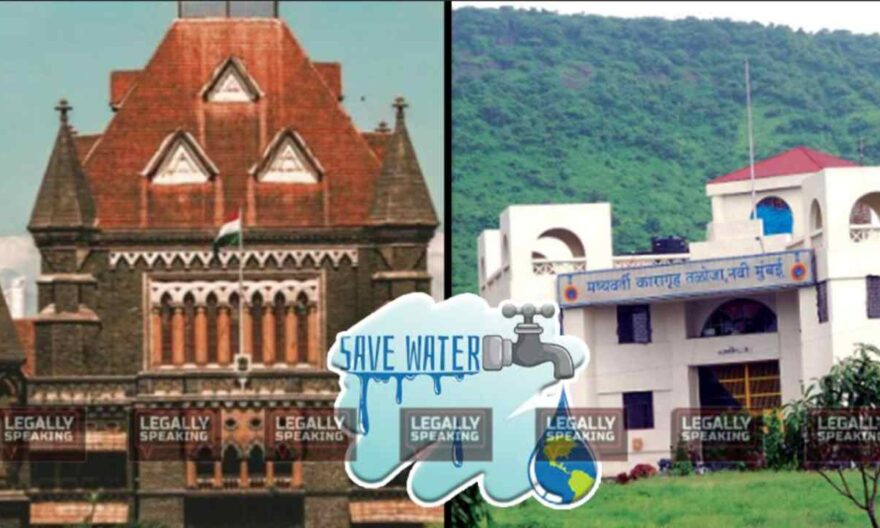
The Bombay High Court on Thursday directed the Taloja Central prison authorities to ensure the provision of clean drinking water to all inmates.
A division bench comprising Justice Revati Mohite Dere and Justice Gauri Godse, emphasized that access to clean drinking water is a fundamental human right. Additionally, the court specified that this provision should be separate from the water provided for activities such as washing and cleaning.
“Priority is clean drinking water. It is their basic right. It has to separate from other water which is used for washing etc. You cannot include drinking water with the other water. We do not understand how drinking water can be the same”, the bench noted.
In addition, the court urged the prison authorities to refrain from measuring or restricting the amount of drinking water provided to prisoners and to make efforts to increase the quantity.
The matter was brought before the bench through a petition filed by an inmate named Abhay Kurundkar, who sought the court’s intervention in ensuring sufficient water supply to the jail inmates.
Previously, the bench had directed the Secretary of the Raigad district legal services authority (DLSA) to conduct an assessment of the water supply available to the inmates at Taloja Central Prison in Maharashtra. Following the visit, the secretary submitted a report to the High Court.
Upon examining the report, the division bench concluded that the water supply provided to the inmates was indeed inadequate.
“Report says requirement is of over 40 lakhs of water. So far 4,41,000 is being provided. And that water is being used for everything. Is that adequate? How do you expect them to do everything in that one bucket of water? There is cleanliness, hygiene to be looked at,” the bench pointed out.
It has also called for further information in the matter, including what steps can be taken to improve quality of water and increase water supply and when would a sewage water treatment plant be installed at the prison.
Furthermore, the bench instructed the authorities at Taloja prison to install and activate a water meter to monitor the quantity of water supplied within the premises. According to the report submitted to the court, the water brought into the prison was stored in Sintex tanks and then transferred to individual inmates’ buckets.
The secretary of the DSLA observed that the water stored in the Sintex tanks contained sediments and dirt. Additionally, the process of transferring water from tanks to buckets resulted in water wastage, as highlighted in the report. The report recommended the provision of additional storage tanks for water and emphasized the need to ensure regular cleaning of these storage units.
Upon reviewing the report, the division bench decided to keep the matter pending for compliance and scheduled the matter for further hearing after two weeks.




